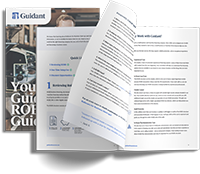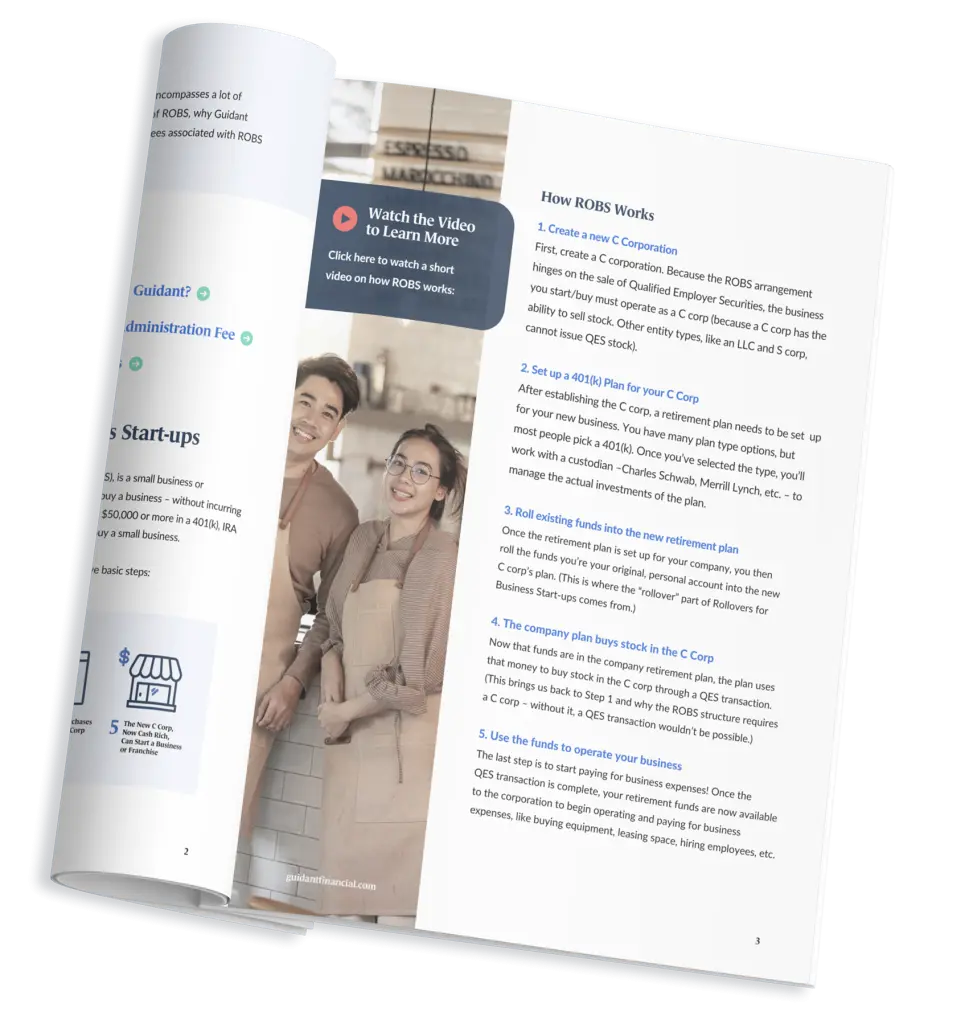This article, exploring the robust demand in the roofing industry and one entrepreneur’s vision for reaching $100 million in revenue through acquisitions, is brought to you by Will Smith of Acquiring Minds. As an experienced entrepreneur who has built and sold online media brands, Will recently turned his focus toward the other side of the entrepreneurship spectrum: acquiring businesses. Faced with a lack of resources on business acquisition, he launched Acquiring Minds, a media platform dedicated to unraveling the complexities of buying, owning, and operating small businesses. Through this platform, Will aims to make the path to successful business ownership more accessible, sharing insights and success stories from the world of acquisition entrepreneurship.
“If you just drive down the road, every single building has a roof,” Matt Jackson, owner of Urethane Systems Inc (USI Roofing), says. “Every single building.”
Every building needs a roof – and the demand for roofing services is particularly fierce in states like Florida, Texas, and Colorado, where weather conditions often necessitate increased regulation and replacement.
When Jackson first considered acquiring a roofing business in 2021, high demand factored into his decision, as did the fact that private equity firms hadn’t yet zeroed in on the industry. Between commercial roofing needs spanning condos, HOAs and more, and residential projects, the runway of opportunity stretched before him.
So Jackson purchased a roofing company. The experience taught him a lot about what goes into an acquisition that sets the stage for growth, from finding the right partners and financing to seizing opportunities and keeping an open mind.
In the next five years, Jackson aims to open five new offices, each generating $10 million revenue; with organic growth and potential acquisitions, reaching the $50 million mark is well within reach, he says. He can even see revenue hitting $100 million in seven or so years.
Here’s how Jackson reached this point in his business acquisition journey — and what he’s doing to take USI to new heights.
The Early Years and “Lightbulb” Moment That Led to ETA
Jackson grew up in the Midwest in a middle-class family skeptical of business ownership, but that didn’t stop him from falling in love with finance in college. Unfortunately, Jackson graduated into the Great Recession. He found it difficult to land the perfect job with his degree and ultimately took a role as a mortgage banker.
Jackson went on to pursue his MBA, during which time he worked full-time as an intern for an insurance carrier, then accepted a financial advising position at Morgan Stanley.
It was a great company, Jackson says, but the lack of opportunity for creativity and his deepening understanding of different assets available to investors – including private equity – got him thinking seriously about entrepreneurship through acquisition (ETA).
Jackson realized that private equity wasn’t targeting small businesses — and “the lightbulb turned on.”
“I was like, ‘I could actually do a LBO (leveraged buyout) using the SBA and be pretty much fully invested in private equity, but I actually own all the equity. How awesome is that?'” Jackson recalls. “So that started to lead me down the path of trying to buy a business.”
The Strategic Choice to Enter the $25 Billion Roofing Industry
Jackson started researching ETA and came across an advertisement for Acquira, an accelerator for acquisition entrepreneurs, on Facebook. He took Acquira’s course in December 2021, and it reaffirmed his decision to pursue ETA.
Jackson knew he wanted to acquire within the home-services industry. He considered plumbing, electrical, HVAC, and roofing, but the latter stood out because it was less expensive and had fewer competitors. Additionally, it didn’t have the same level of interest from private equity.
“I saw an opportunity to get a head start, buy a smaller business [and] professionalize it, hoping at some point in time, private equity will find this industry and start trying to buy companies in roofing,” Jackson explains. “And then that will help push my multiple up even further down the road.”
The industry’s numbers were on his side. The roofing market is valued at $25.5 billion nationwide and projected to reach $45 billion by 2033; Florida alone accounted for about $8 to $9 billion of that market, Jackson says.
Jackson also wanted a business partner. Even before completing Acquira’s course, Jackson called his friend Victor Lugo, whom he’d worked with at Morgan Stanley, to explain his investment thesis and see if he’d be interested in a partnership. He was. The duo needed to find a roofing company to buy.
The Search for Opportunity: Finding USI Roofing and Closing the Deal
Jackson was living in Chicago when he began looking for a business to acquire, but he wanted to relocate to Florida, so that’s where he began his search. Florida has a multiple listing service (MLS)-style database of businesses on the market; Jackson recalls seeing about 30 roofing businesses for sale.
Those findings led to six or seven conversations, which brought a significant revelation: Many roofing companies saw $2 to $3 million revenue and $500,000 to $700,000 in EBITDA despite not treating their customers very well.
“Their whole model was, We don’t really service our roofs after we’re done. We just put the roof on,” Jackson says. “They didn’t have service crews and service teams. But yet they were still able to generate $500,000 a year in EBITDA. And I was like, ‘Oh my gosh, this is incredible. They don’t even have a great service team. They don’t really care about their customers. And they’re still doing really, really well.'”
Jackson admits his search process was “unrefined.” He looked at companies big and small to gain a greater understanding of the industry.
Ultimately, he decided on USI. Founded by Jeff Slayton in 1998, USI focused on commercial roofing and capitalized on a niche segment: spray foam. There aren’t many spray foam roofers in Florida. A lack of education on spray foam roofing, property liability insurance’s push for people to remove spray foam roofs, high materials costs ($150,000 minimum), and stringent certification requirements contribute to the small number, Jackson says.
However, when Jackson contacted the broker about purchasing USI, he learned it was already under contract. But as luck would have it, just as Jackson was about to finish the letter of intent (LOI) for another company, the broker got in touch to say the deal had fallen through. Jackson made his move.
At the time of sale, USI saw $5 million in topline revenue and a 10% net profit margin. Jackson and his partner purchased it at 2.75x, which is fairly close to the industry average, he says. The seller accepted a lower price in exchange for coming on as a consultant; he’s paid a $100,000 annual salary to renew for at least three years.
Leveraging ROBS Financing for a Strategic Acquisition
To fund the acquisition, Jackson turned to Rollover as Business Startups (ROBS) financing, a strategy that allowed him to use his 401(k) to cover a portion of the equity needed for the deal. Jackson used Guidant Financial to help set it up.
With the ROBS structure, Jackson’s 401(k) owned 22.5% of the business, while he personally held another 22.5%. His partner controlled 45%, and a limited guarantor — brought on because Florida requires a roofing license neither Jackson nor Lugo held — took the remaining 5%. The arrangement allowed Jackson to retain a significant stake while benefiting from the tax advantages of ROBS.
Although some people who use ROBS to buy a business want to get the equity out of their 401(k) as fast as possible for complete personal ownership, Jackson plans to maximize the tax advantage.
“I’m thinking more of a longer term view,” Jackson explains. “If everything goes really well, we have a very successful exit and in five, seven, ten years, however long that is, I can not pay a capital gain on my exit, but I can always reinvest that money through another round, into another small business.”
Building a Foundation for Growth at USI
USI currently has 25 employees; five work in the office and 20 are in the field. Jackson didn’t want to change the business too much during his first six months of ownership. Instead, he focused on working with the staff to understand goals and put a new customer relationship management system (CRM) in place.
What’s more, when Jackson acquired USI, the company had relationships with only about a dozen of the 1,800 property managers that exist across Florida. He strives to expand those relationships and cultivate relationships with insurance agents and general contractors doing government work.
Although USI is primarily in the commercial roofing business, it does take on residential projects too, and Jackson is open to exploring both avenues for growth. Additionally, even though USI has carved a niche for itself in foam roofing, it plans to diversify with its conventional roofing offerings, and the company is well-equipped to extend in either direction as the market demands.
With so many pathways to potential growth, one of Jackson’s biggest challenges is deciding where to spend his time day to day — because there’s no shortage of opportunity if you make the most of your referral network.
“If you have a decent portfolio of big jobs, you can leverage that,” Jackson explains. “If you act professional to your end clients and to your referral partners, they will give you work. There are a lot of people starving for really good roofing contractors that aren’t going to lie to the client or try to create a bigger job out of what could be a smaller job.”
Expanding Horizons: Growth Strategies and Future Goals
USI anticipates making its mark on all of Florida except the panhandle, where inexpensive labor drives prices down, and the company aims to open a Miami office in the near future. USI plans to focus on organic growth, building on its strong brand reputation, but it isn’t opposed to potential acquisitions down the line either.
Nowadays, Jackson receives calls from private equity firms asking him to sell his business on a weekly basis.
Jackson’s 2021 prediction came to pass — and he suggests people interested in ETA consider a roofing business even if they don’t live in one of the states where the service sees weather-related demand.
“Any business where you have a need can be a good business,” Jackson says. “With the roof, for example, no one ever wakes up in the morning and is like, ‘I’m going to buy a new roof today. No one’s ever said that, and it will never happen. But if their roof is leaking, the first thing they’re going to do is say, ‘Oh my gosh, my roof’s leaking. I’m not getting on my roof. I need to call someone.'”










